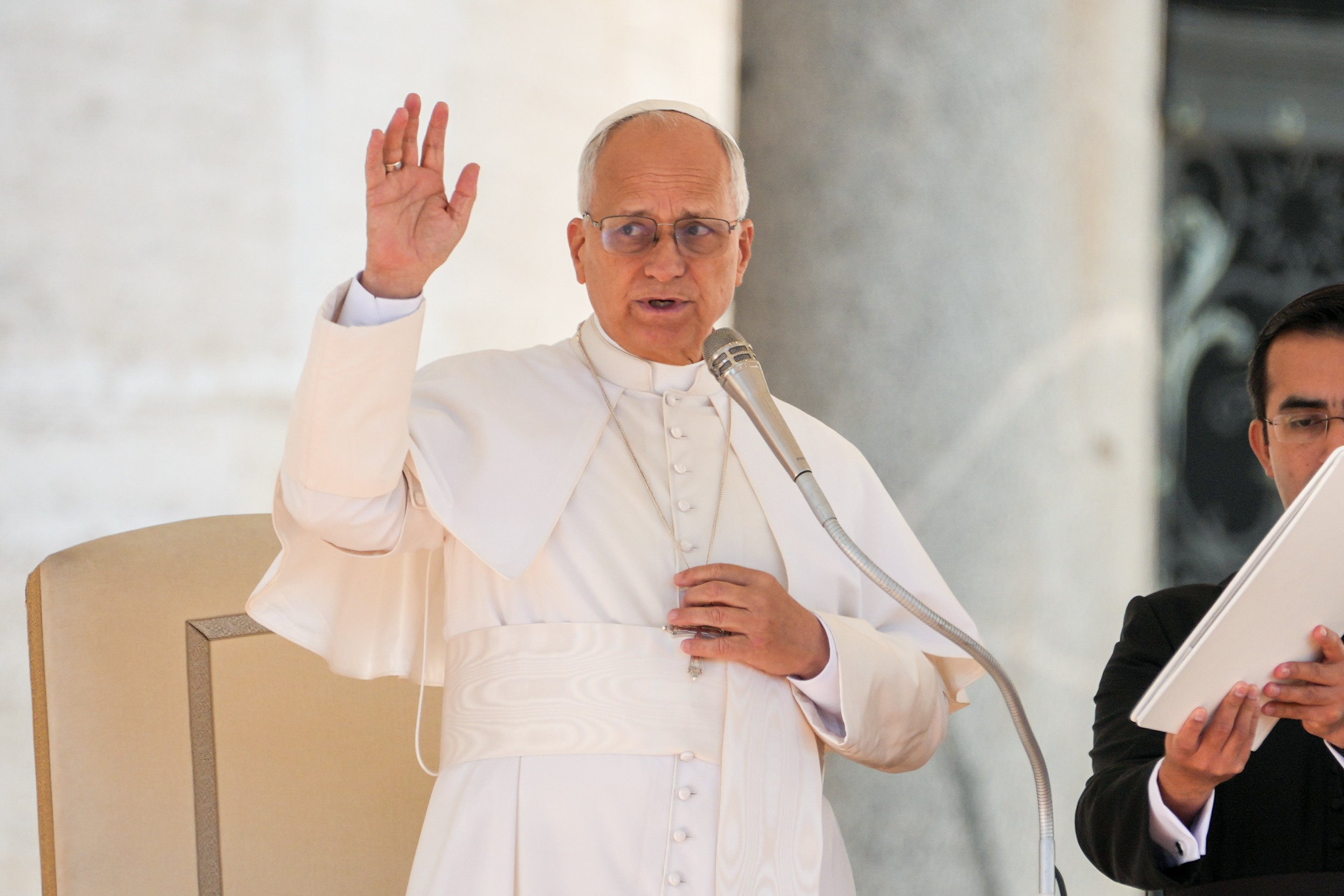April 6, 2018 at 1:53 p.m.
WORD OF FAITH
God can't be tied down
'Acknowledge today and take to heart that the Lord is God in heaven above and on the earth beneath; there is no other. Keep His statutes and commandments...' -- Deuteronomy 4:39-40
Followers of God are constantly discovering who God is. Those who profess a biblical faith are convinced that knowing God isn't a matter of just memorizing catechism questions and answers, but of experiencing God on different levels and at different times in our lives.
Our sacred authors did so, and presumed their readers were committed to the same quest. We should especially keep this quest in mind when we celebrate the feast of the Trinity.
Sunday's three Scripture passages don't zero in precisely on a belief that there are three persons in one Gaod. That specific insight into God's personality didn't take its well-known form until Constantine's Council of Nicea in 325 AD - almost 300 years after Jesus' death and resurrection, and about 200 years after the last book of Scripture was composed.
But these readings help us with some significant insights along the road to Nicea's declaration.
Deuteronomy's author, for instance, presumes (4:32-34, 39-40) his Jewish ancestors have heard the "voice of Yahweh," speaking to them not only "from the midst of fire," but also through the "statutes and commandments" which Yahweh lovingly gave them during their early centuries together.
All the rules
They were convinced that, when they followed those specific regulations, they were imitating the personality of the God they worshipped. Their behavior toward others mirrored Yahweh's behavior toward them.
More than any other divine encounter, their exodus from Egypt convinced them Yahweh was a God who freed people, not enslaved them. It was as a free people that they continually surfaced God in their midst.
The earliest followers of Jesus of Nazareth experience a parallel freedom. Paul reminds the Christian community in Rome (Romans 8:14-17) that the Spirit of God which that first-century itinerant preacher shared with His disciples - and now was giving to them - wasn't someone who brought fear to their lives.
"You did not receive a spirit of slavery," he writes, "to fall back into fear, but you received a Spirit of adoption, through whom we cry, 'Abba, Father.'"
In other words, by imitating Jesus' dying and rising, we more clearly understand and experience God as a loving parent, not as a punishing judge. Some of our old definitions of God don't fit God's actual personality.
New ideas
It's also clear from the ending of Matthew's Gospel (Mt 28:16-20) that Jesus' followers were anxious to share their new experiences of God with others, especially the formula they employed in baptisms. Though Paul, writing mostly in the 50s, speaks only about baptizing "in the name of Jesus," Matthew's Jesus expands that ritual.
By the mid-70s, Christians are obviously baptizing others "in the name of the Father, and of the Son, and of the Holy Spirit." Christian followers are experiencing God not just in the risen Jesus, but also in the Spirit which that "new creation" shares with them. God can't be tied down to just one definition, thought or encounter.
If that's true about God, what about us? Paul reminded the Roman Church that "those who are led by the Spirit of God are children of God." I presume children share in their parents' personalities. If Sunday's feast revolves around constantly discovering God, it also has something to say about constantly discovering ourselves.
The ancient Greek philosophers and many medieval theologians thought they had us figured out. Today's people of faith believe there's still a lot left to learn.
[[In-content Ad]]
SOCIAL MEDIA
OSV NEWS
- US bishops celebrate Mass to ‘beg the Holy Spirit to inspire’ their fall assembly
- As deal to end shutdown advances, Catholic groups urge action on health insurance costs
- Texans vote overwhelmingly to enshrine parental rights in state constitution
- Supreme Court declines Kim Davis case seeking to overturn same-sex marriage ruling
- ‘Do you love Jesus more than your political opinion?’: Bishop Tyson says the church faces a test
- Vatican says Swiss Guards investigating alleged antisemitic gesture
- Bishop: Survival of Christian communities in Nigeria depends on security, justice
- Pope asks for extra care when using AI in medicine
- Pope holds long meeting with Belgian abuse survivors
- Delegation of top prelates, lay activists gives Brazil church strong presence at COP30







Comments:
You must login to comment.